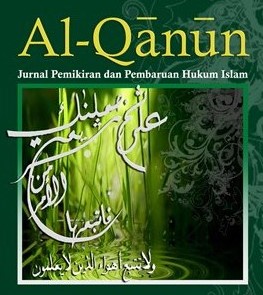Kedudukan dan Kewenangan Dewan Pertimbangan Presiden dalam Tinjauan Fiqh Siyasah
DOI:
https://doi.org/10.15642/alqanun.2019.22.2.262-282Keywords:
Presidential Advisory Council , Watimpres, Fiqih siyasahAbstract
This paper aims to find out the perspective of Fiqh Siyasah on the position and authority of the Presidential Advisory Council (Watimpres) under Constitutional Law in Indonesia. From the results of this study, it can be concluded that the Presidential Advisory Council is domiciled in the office of the President because it is part of the power vested on the state government and is responsible to the President. Presidential Advisory Council is authorized to provide advice and consideration to the President, whether requested or not. Every member of the Presidential Advisory Council can give advice and consideration to the President. Watimpres is not permitted to provide information, statements, and/or disseminate the contents of advice and consideration to any party. In the QS. Ali Imran (3): 104 implicitly outlines the existence of an advisory body in the community. Ahl al-Halli wa al-’Aqdi is not under the caliphate and is accountable for the caliph. The responsibility to give advice and consideration to the President based on the Islamic notion of amar ma'ruf nahi munkar comes under the QS. Ali Imran (2): 104, 110, and 114. Besides, the Prophet Muhammad has ordered to convey the truth even though it was bitter for those who delivered it.
Downloads
References
Al-Rasid, Harun. Naskah UUD 1945 Sesudah Empat Kali diubah oleh MPR. Jakarta: UI Press, 2007.
Amran, Jhoni, dan Zulfadli. “Demokrasi dalam Pandangan Ayatullah Imam Khomeini.” Jurnal Islam dan Demokrasi 1, no. 4 (September 2014).
Asshiddiqie, Jimmly. Perkembangan dan Konsolidasi Lembaga Negara Pasca Reformasi. Jakarta: Konstitusi Press, 2006.
Departemen Agama Republik Indonesia. Al-Qur’an dan Terjemahannya. Bandung: Sinar Baru Algesindo, 2007.
Djazuli, Ahmad. Fiqh Siyasah: Implementasi Kemaslahatan Umat dalam Rambu-rambu Syariah. Jakarta: Kencana, 2003.
Gusmansyah, Wery. “Trias Politica dalam Perspektif Fikih Siyasah.” Al-Imarah: Jurnal Pemerintahan dan Politik Islam 2, no. 2 (2017).
Hanbal, Ahmad Ibn. Musnad al-Imam Ahmad ibn Hanbal. Juz 17. Beirut: Dar al-Kutub al-’Ilmiyyah, 1993.
Handayani, Yeni. “Ada Apa dengan Dewan Pertimbangan Presiden?” RechtsVinding 4, no. 1 (April 2015).
Harimurti, Yudi Widagdo. “Analisis Kritis UU Nomor 19 Tahun 2006 tentang Dewan Pertimbangan Presiden.” Jurnal Pendidikan Pancasila dan Kewarganegaraan 27, no. 1 (Pebruari 2014).
Iqbal, Muhammad. Fiqh Siyasah: Kontekstualisasi Doktrin Politik Islam. Jakarta: Gaya Media Pratama, 2001.
Kansil, C.S.T. Hukum Tata Negara Republik Indonesia. Jakarta: Bina Aksara, 1986.
Mahfud MD, Moh. Perdebatan Hukum Tata Negara Pasca Amandemen Konstitusi. Jakarta: LP3S, 2007.
Maududi, Abul A’la al-, dan Asep Hikmat. Hukum dan Konstitusi Sistem Politik Islam. Bandung: Mizan, 1995.
Muwahid. “Sistem Ketatanegaraan Indonesia Pasca Amandemen UUD 1945.” Jurnal Al-Qanun 13, no. 2 (Desember 2010).
“Peraturan Presiden No. 10 Tahun 2007 tantang Tata Kerja Dewan Pertimbangan Presiden,” 2007.
Pulungan, Suyuthi. Fiqh Siyasah: Ajaran, Sejarah dan Pemikiran. Jakarta: Raja Grafindo Persada, 1999.
Rahmawati. “Sistem Pemerintahan Islam Menurut Al-Mawardi dan Aplikasinya di Indonesia.” Diktum: Jurnal Syari’ah dan Hukum 16, no. 2 (Desember 2018).
Taymiyah, Ibn. Etika Politik Islam. Diterjemahkan oleh Rofi’i Munawar. Surabaya: Risalah Gusti, 1995.
Tutik, Titik Triwulan. Pokok-pokok Hukum Tata Negara. Jakarta: Prestasi Pustaka Publisher, 2005.
“Undang-undang No. 19 Tahun 2006,” 2006.






